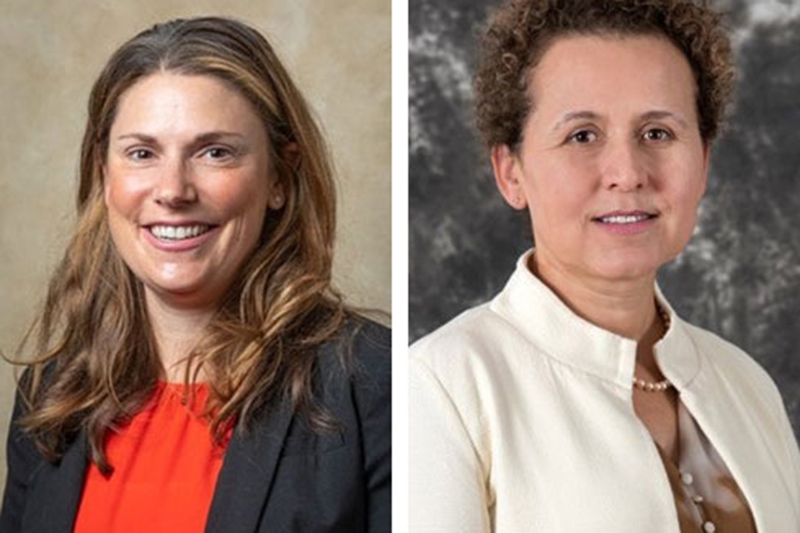Engineering Researchers Use Data in New Ways to Improve Waterways Management
Two College of Engineering researchers are exploring how the use of real-time data on vessel movements can help government agencies make better-informed decisions about shipping infrastructure to reduce costs and ultimately improve the nation's supply chains.
Sarah Hernandez, associate professor of civil engineering, and Sandra Eksioglu, professor of industrial engineering, were awarded $222,039 for their study by the U.S. Army Corp of Engineers Coastal Hydraulics Laboratory at the U.S. Army Engineering Research and Development Center.
The agencies historically have relied on manually collected surveys of shippers and carriers to support their decisions about operations maintenance and infrastructure needs for waterways and ports. Detailed information about the movement of goods and vessels is important when scheduling lock and dam repairs, channel dredging and other maintenance, but the way data is processed means it's not available until it's about two years old.
Hernandez and Eksioglu will use anonymized vessel data collected by the U.S. Coast Guard to make predictions about waterway and port traffic, giving the agencies more accurate information on waterborne commerce trends.
"This work is exciting for our team because it fills a critical gap in the type of data that can be available for strategic decision making," said Hernandez, the principal investigator. "Our team works to use existing data sets in new and exciting ways to close data gaps that prevent transportation and other government agencies from making better informed decisions."
The Coast Guard collects mandated Automatic Identification System data for purposes of safety and navigation. Using the data predictively presents a cost-effective way to gain insights into critical freight supply chains, said Eksioglu, co-principal investigator.
"This work will provide near real-time insight into how our inland and coastal waterways function within the freight supply chains in the U.S.," she said.
More efficient management of waterways will make them a more competitive option for shipping, potentially meaning a reduction in the costs for food, building products and other consumable goods, the researchers say.
The research team includes Sanjeev Bhurtyal, a Ph.D. candidate in civil engineering, and Hieu Bui, Ph.D. candidate in industrial engineering.
Topics
Contacts
Sarah Hernandez, associate professor
Department of Civil Engineering
479-575-4182,
sarahvh@uark.edu
Jennifer P. Cook, director of communications
College of Engineering
479-575-5697,
jpc022@uark.edu
Headlines
Distinguished Research Team From Johns Hopkins University Joins U of A, I³R and College of Engineering
Mehran Armand and Alejandro Martin Gomez will advance medical robotics and extended reality research at the U of A.
U of A School of Law Student Selected for Shook Scholars Institute
First-year law student Gabrielle Rancifer was selected as one of 20 stuents from around the country to participate in the Shook Scholars Institute held April 3-5, in Kansas City, Missouri.
'Stop Sign' Disclosures on Ultra-Processed Food Have Positive Effect
Researchers found that front-of-packaging marketing claims used on ultra-processed foods can be misleading to consumers.
Registered Student Organizations: Re-Register Now for 2024-25; Deadline May 12
All current RSOs that plan to be active during the 2024-25 academic year must complete the registration process by May 12.
NEH Grant to Support History Research on South American Indigenous War and Mission Militias
Shawn Austin, associate professor of history, received a National Endowment for the Humanities Summer Stipend for his book about Guaraní Militias in the Spanish Río de la Plata, 16th-19th Centuries.





